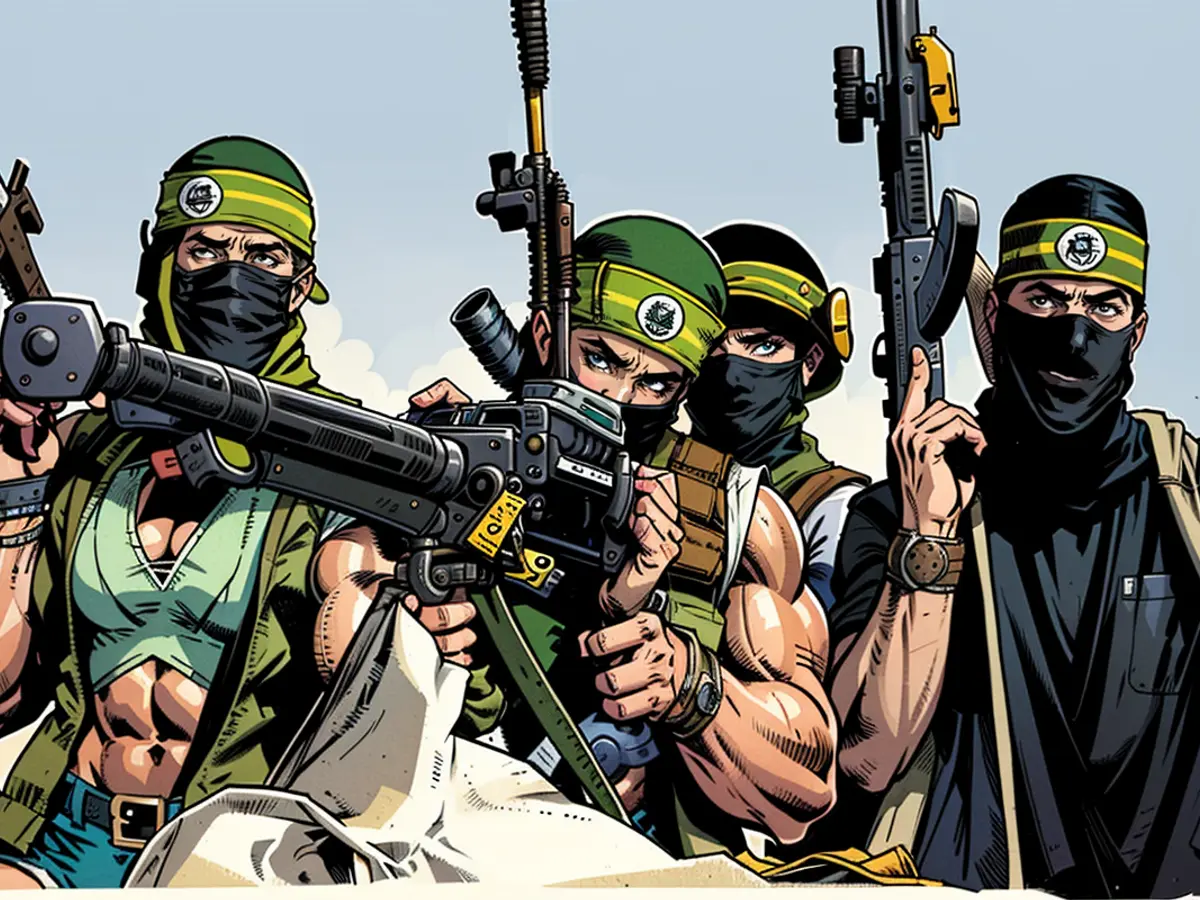Hamas and Fatah agree on post-war government
The two Palestinian organizations Fatah and Hamas have been enemies for years. Palestinian President Abbas accuses Hamas of being responsible for the Gaza War and Israel's actions. Now it seems that the groups have overcome their split through mediation by China.
During talks in China, 14 Palestinian factions, including the Islamic Hamas, have agreed to form a national interim government of "reconciliation" for the post-war period in the Gaza Strip, according to Chinese Foreign Minister Wang Yi. The most important point is the agreement on the formation of a "national interim government for reconciliation," Wang said after the signing of the "Beijing Declaration" by the groups. The secular Fatah, which is in rivalry with Hamas, is also among the signatories.
The high-ranking Hamas representative Musa Abu Marsuk confirmed that his organization had signed the declaration. "We are committed to national unity and demand it," Abu Marsuk added.
The radical-Islamic Hamas has been waging war against Israel in the Gaza Strip since October 2023. Its fighters drove out Fatah from the Gaza Strip in 2007. Fatah is the movement of Palestinian President Mahmoud Abbas. He is the head of the Palestinian Autonomous Administration. It exercises limited self-administration in the Israeli-occupied West Bank but only has limited power there.
The Hamas and the Palestinian Autonomous Administration have been conducting reunification talks since 2007. The efforts towards unity have failed every time due to the rivalry between Hamas and Fatah. The failure was also due to the Western refusal to accept a government in which Hamas is involved, as long as it does not explicitly recognize Israel.
Abbas criticizes Hamas
Abbas had recently assigned Hamas a co-responsibility for the Gaza War and thus demonstrated growing differences among the Palestinians. In a statement issued by Abbas' office in the West Bank in mid-July, it was stated that Hamas was responsible for the continuation of the war.
Thus, Abbas confirmed his accusations against Hamas. In mid-May, the Palestinian President had accused Hamas of providing Israel with "pretexts" for its military action in the Gaza Strip. The attack on October 7, which was based on Hamas' unilateral decision, provided Israel with "further pretexts and justifications" to attack "and kill hundreds of thousands of people (...) and expel them," Abbas said at a summit of the Arab League in Bahrain.
China increases influence in the Middle East
Wang added that reconciliation was "an internal matter for the Palestinian groups." At the same time, it could not be achieved "without the support of the international community." His country wanted to play a "constructive role in ensuring peace and stability" in the Middle East.
China has shown solidarity with the Palestinian cause in the past and supports a two-state solution in the Israeli-Palestinian conflict. This solution envisions an independent Palestinian state co-existing with Israel. Beijing had already received the rival Palestinian organizations Hamas and Fatah for talks on an "internal Palestinian reconciliation" in April.
China has strengthened its economic and diplomatic relations in the Middle East in recent years. Moreover, the region plays a crucial role for Beijing as a hub in its infrastructure project New Silk Road. The ports, railways, airports, and industrial parks built as part of the project in Asia, Europe, Africa are intended to give China better access to the markets of other countries.
- The agreement signed between 14 Palestinian factions, including Hamas, in China, aims to establish a national interim government for "reconciliation" in the post-war period of the Gaza Strip.
- Chinese Foreign Minister Wang Yi highlighted the significance of the agreement, emphasizing the formation of a "national interim government for reconciliation" as the key point.
- Fatah, the secular movement led by Palestinian President Mahmoud Abbas, is also among the signatories of this declaration, indicating a potential shift in Palestinian politics.
- The radical-Islamic group Hamas, who have been at odds with Fatah since driving them out of the Gaza Strip in 2007, and have been waging war against Israel, have now agreed to this reconciliation endeavor.
- In the context of this political development, Abbas, the Palestinian Autonomous Administration head, has criticized Hamas for its role in the Gaza War, assigning them a co-responsibility for the conflict.
- Despite acknowledging Hamas' involvement, China, as a supporter of a two-state solution in the Israeli-Palestinian conflict, continues to advocate for peace and stability in the Near East and reinforces its influence in the Middle East by strengthening economic and diplomatic relations.








